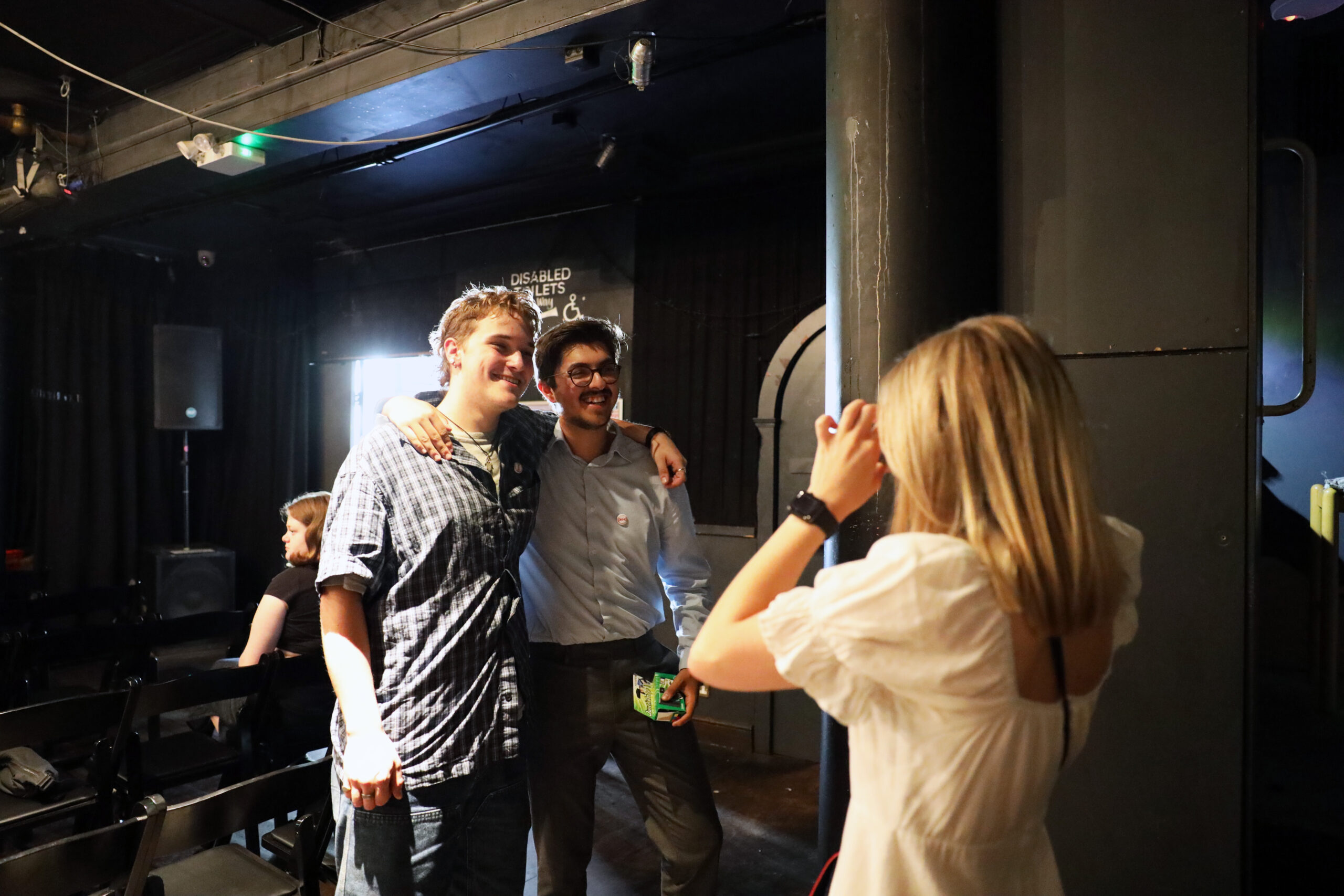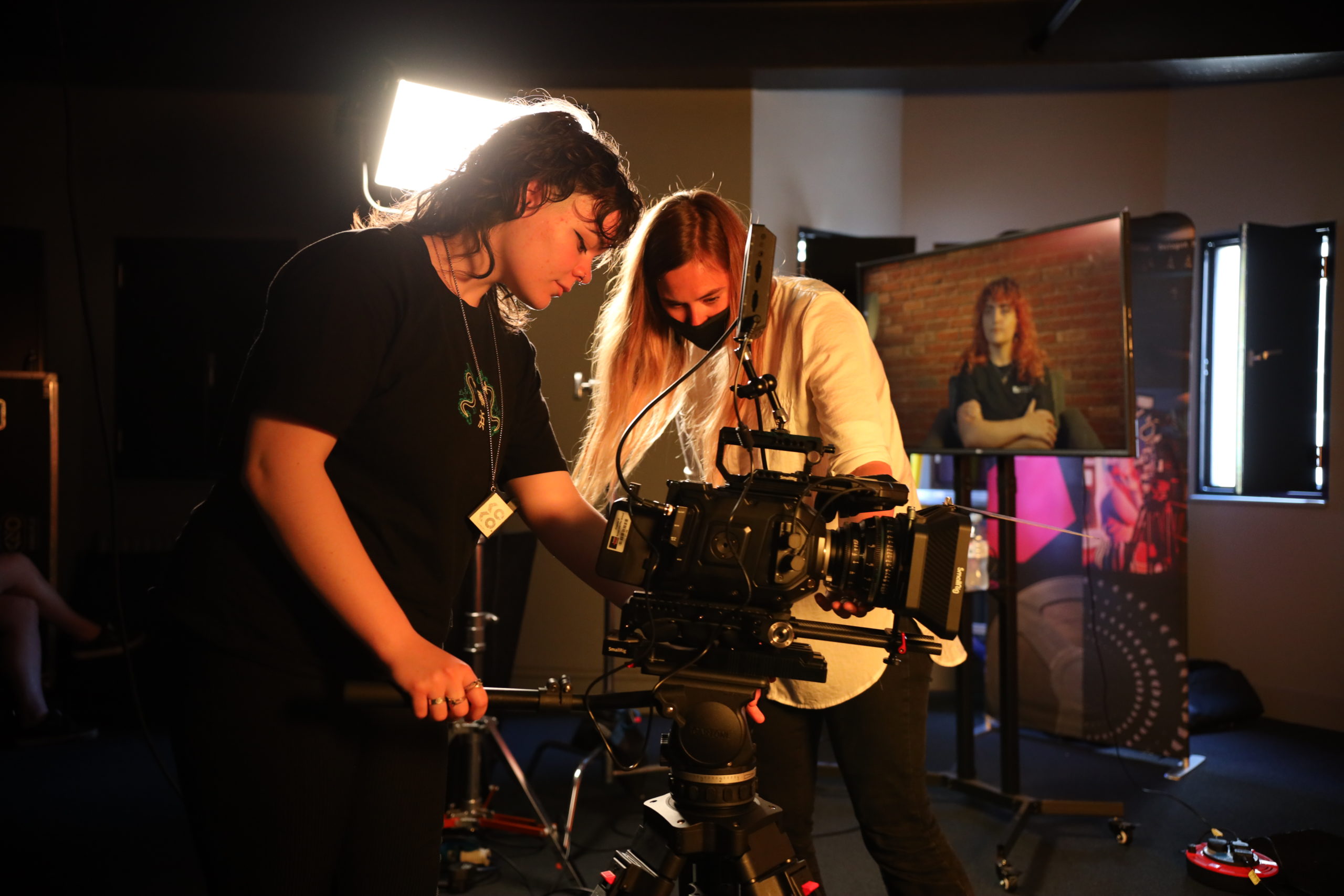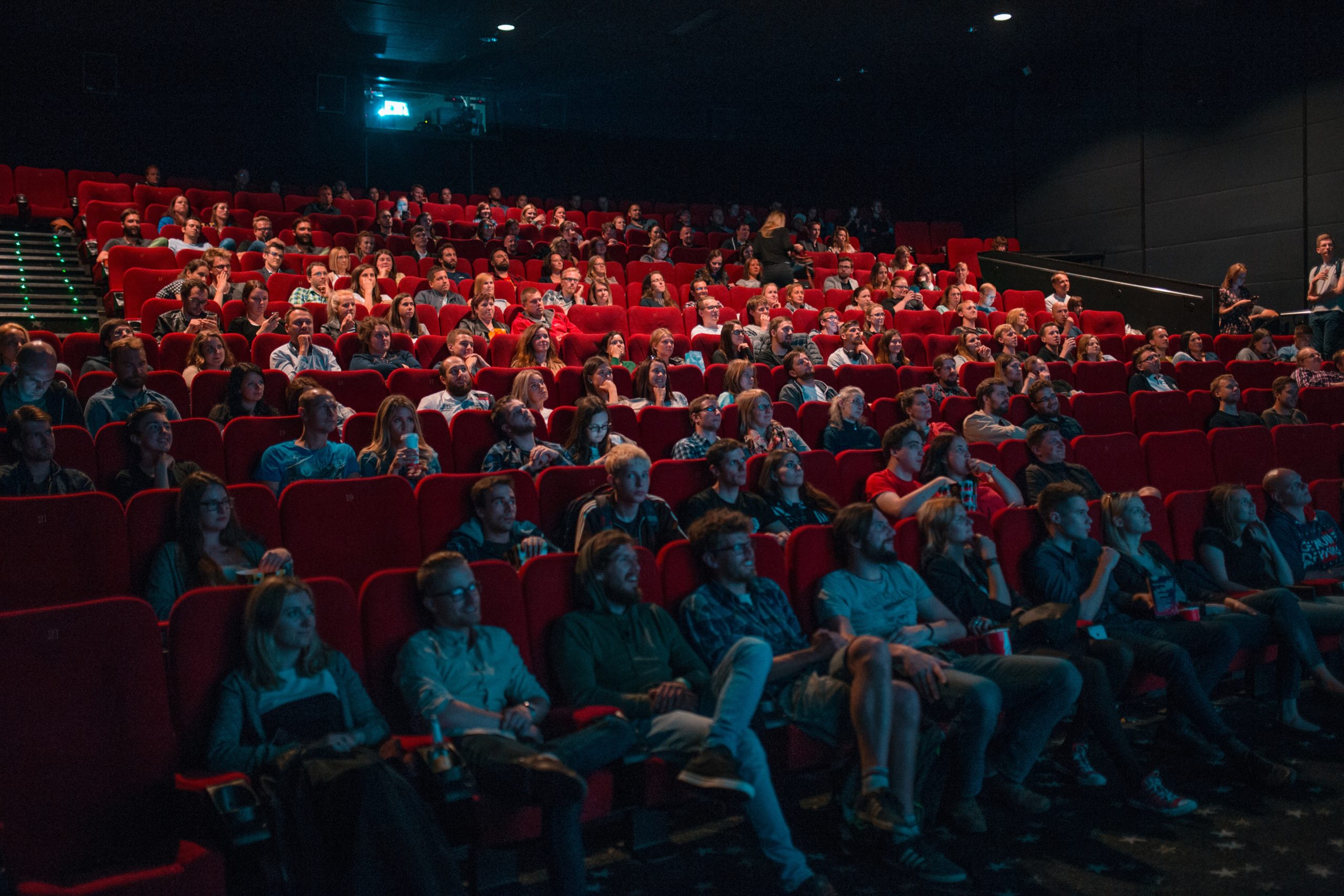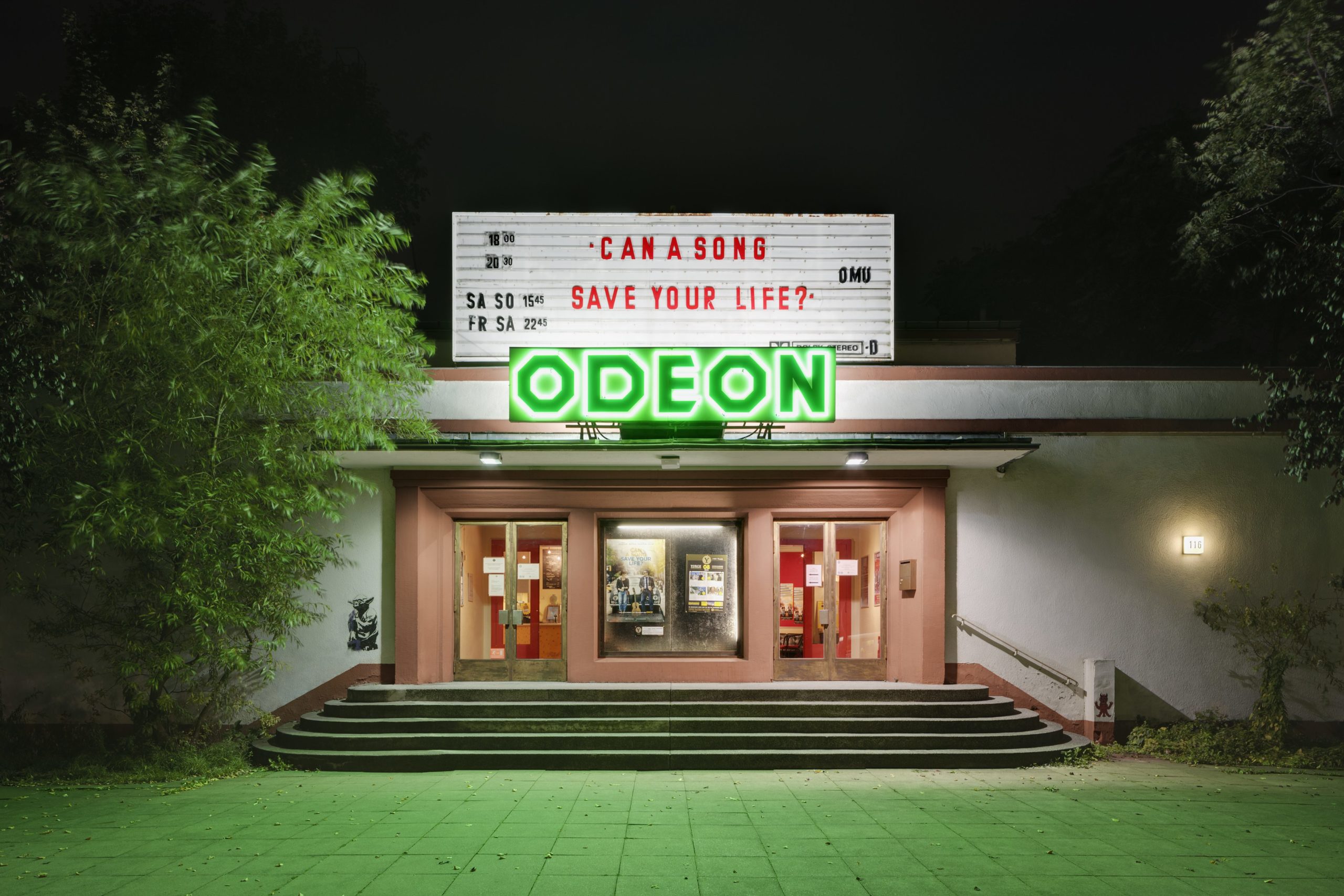This week, we had the pleasure of sitting down with Amaar Zafar, a current student who recently organised his very own film festival, the Stories of Strength Film Festival (SOS Festival).
Held on Sunday, August 11th, at The Brunswick in Hove, this inspiring event raised over £750 for three incredible charities supporting relief efforts in Palestine: UK Humanity First, Anera, and Medical Aid for Palestinians. The festival showcased nine powerful short films, ranging from documentaries to narratives and video journalism, that highlighted the strength of solidarity and the power of film to spark important conversations across communities.
The films shown were: ‘The Power to Decide’ (Dir. Wojtek Perales), ‘Mind Games’ (Dir. Phillip Sutton), ‘A Well-Bread Woman’ (Dir. Jasmine Kaur Gregory), ‘The Absent Guest’ (Dir. Thomas Au), ‘The Script’ (Dir. Keith Chanakira), ‘Scars’ (Dir. Pav Kung), ‘EsCape Town’ (Dir. Colin Macrae), ‘Battleground’ (Dir. Mark Bone & Thomas Kwesi), and ‘Last May in Palestine’ (Dir. Rabeea Eid).
We caught up with Amaar to hear all about his experience organising the festival and his reflections on the day.
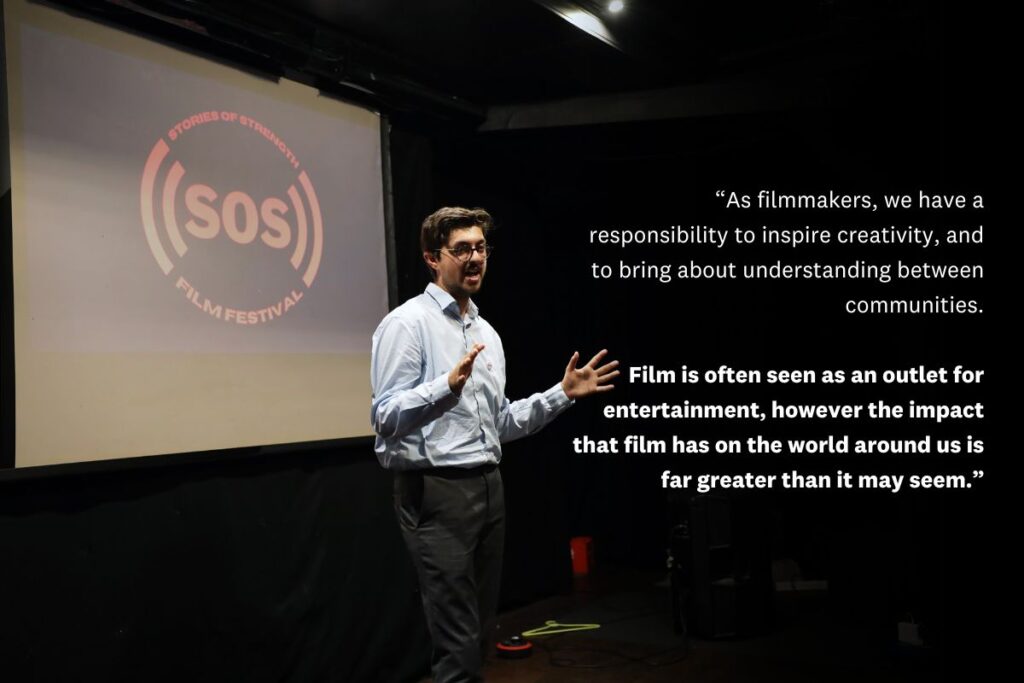
Student Insight
Can you tell us a bit about yourself and what inspired you to start the Stories of Strength (SOS) Film Festival?
Hello! My name is Amaar Zafar, I’m currently awaiting to step into my final year at Screen and Film School Brighton. I’m a cinematographer and documentary director primarily, but I love film in many aspects and will dabble in whatever creative pursuit takes my interest.
The idea for SOS Film Festival came about as one of those late-night thoughts that just won’t leave your brain. We’ve all seen the news, and regardless of your opinions or political views of current world events, thousands of innocent Palestinians are suffering and dying. The videos and pictures we’ve been seeing coming out of Palestine are truly horrifying. As someone who is privileged enough to have never experienced something of that scale, it’s scarring to see such imagery of the horrors unfolding and how it’s being so normalised. As it all comes out, it constantly feels as if there is nothing we can do about it.
I think that’s what truly sparked the idea: the feeling of helplessness as if there was nothing I alone could do to have an impact. As a documentary filmmaker, my immediate thought was to want to go out and help on the ground and share the stories of the people affected, but that just wasn’t possible. The idea really came to a head one night, when I couldn’t sleep because this was the only thing on my mind.
One of the great things about filmmaking is the sense of community it harbours. It gives us an outlet to share our stories, bring people together and begin to better understand one another. It’s when I started looking at it from that aspect that I realised that I don’t actually have to make a film to be able to help the cause. Instead, if I could rally a group of people around an event made to share other films that showcase stories of strength and determination, it was only then that I could have a greater impact, by bringing a community of people together and raising money.
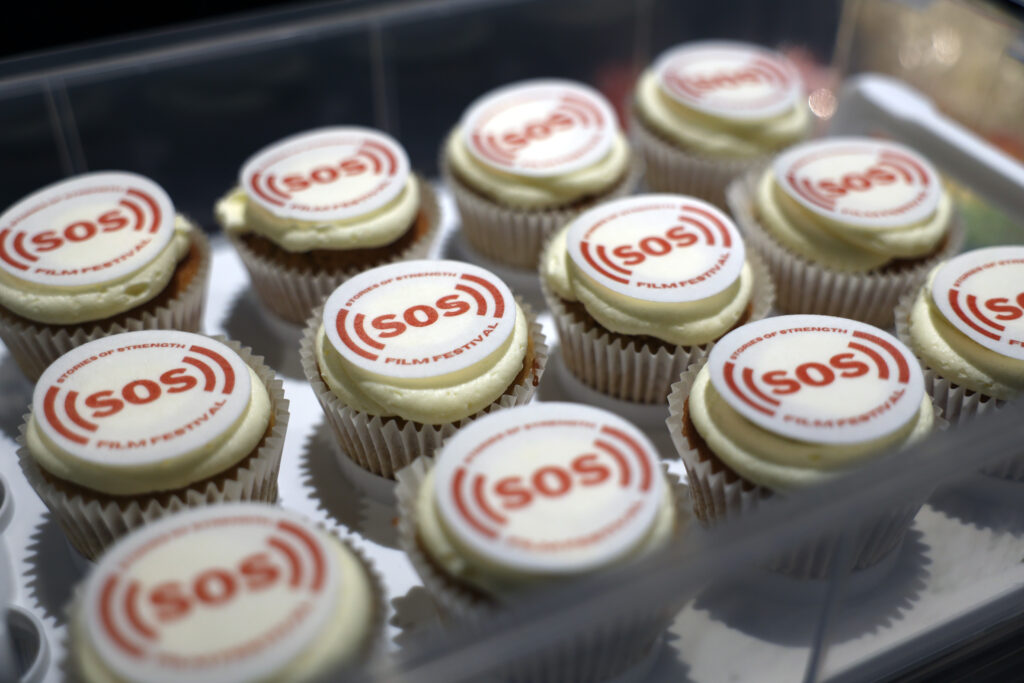
What was the process like in turning the idea of the festival into a reality?
The process of turning the idea of a festival into reality was a rather interesting one. In some ways it’s a lot easier than you would expect it to be and in other ways it’s so much more difficult. I actually had the idea a few months before the festival began, however it ended up on the back burner for quite a while, as the biggest hurdle was trying to find a venue to host the event. At this point, because I didn’t even know if this was going to be able to become a reality while finding a venue, I had no name planned for the festival and it was still a rather barebones idea.
As this was a charity event, I wanted to keep costs as minimal as possible, in order to ensure that as much of the funds we raised could go directly with the charities we’re supporting rather than trying to cover our own costs first. In terms of finding the venue I got quite lucky as my friend Jasmine had found a post from the Brunswick, who advertised that they would be giving away their event space for free throughout the month of August.
After confirming a date with them, I then went into overdrive trying to figure out all the rest of the details. All of this was done, while I was still working on several different shoots as a freelancer. In retrospect, I realise how little time I actually gave myself to put all the pieces in place.
After that, things just fell into place. I created the name for the festival and created a logo, then began to work on some promotional material. Following that, I built the website page and made a social media account, before officially launching the festival with two weeks until the event date. The hardest part that I found, was trying to promote it to as many people as possible and to then try and convert interest into ticket sales and donations.
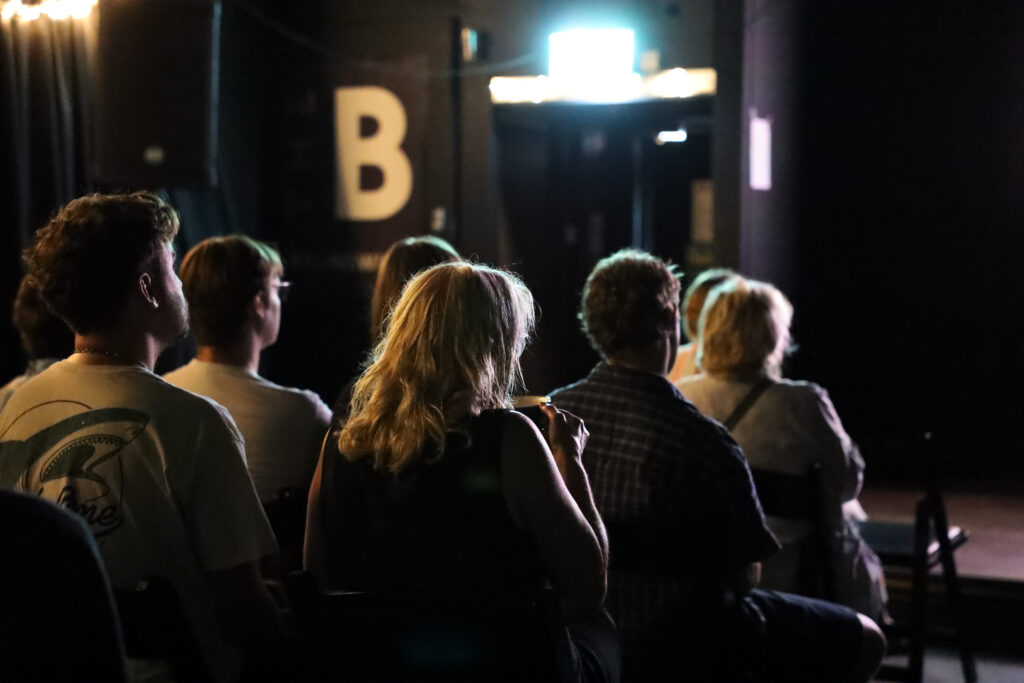
How did you go about selecting the films and stories to be featured in the festival?
Selecting the films was a fun and interesting process. I’ve never taken on a task like this, so it was fun to delve into something a little bit different. There are two main methods that I used to source out films: the first was to advertise about the festival online and garner as much interest as possible.
The second method was to speak to people specifically either through DMs and specific social groups, or in-person networking events, such as one I had attended the week prior to announcing the festival, courtesy of the Royal Television Society (who have been incredibly supportive and helpful in this endeavour).
The themes I wanted to focus on for this festival were quite simple. Of course, as the name implies, I wanted to focus on “stories of strength”. Being a documentary filmmaker myself, I wanted to have a good number of documentaries being shown at this festival. I also wanted to make sure that this festival focused on minority groups, such as people from BIPOC, religious minority and challenging backgrounds.
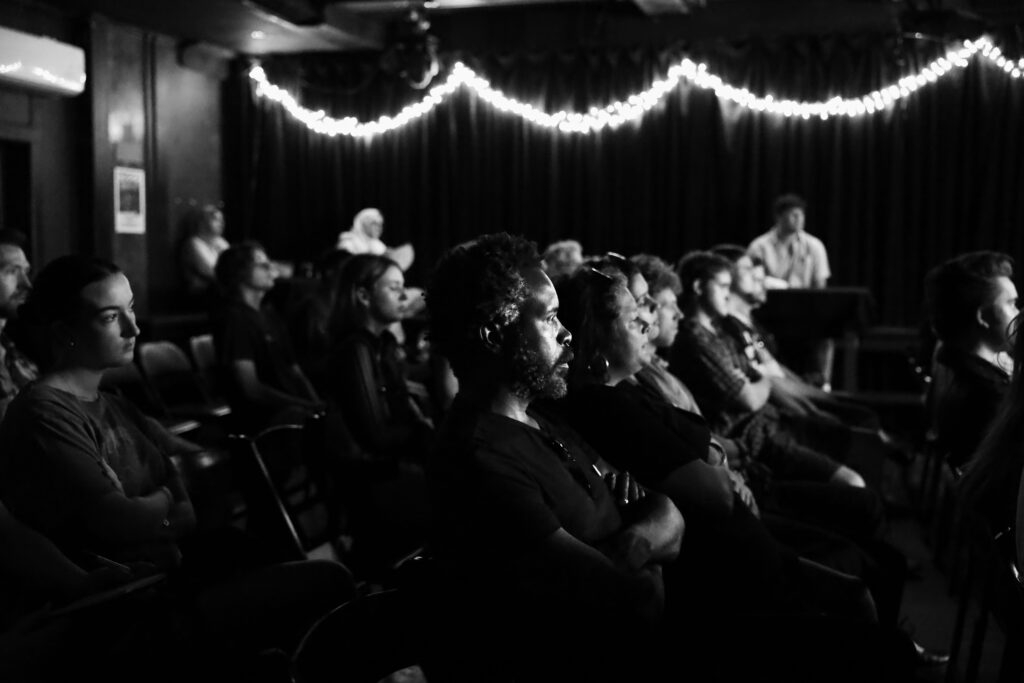
What role did your education and experiences at Screen and Film School play in preparing you for this project?
Being a Screen and Film School student not only gave me the tools to better network with individuals to make this event a reality, but through so many of the opportunities I’ve received at the film school, it’s given me the tools to understand how to manage an event like this. From working as a student ambassador for the university, to working on professional sets, so many of the small soft skills as well as many of the technical hard skills that you pick up from these jobs have been applicable in organising and running the film festival.
In order to save costs, we didn’t hire a sound or video technician, so skills like these were things that I had picked up from my time at film school and it meant I was able to manage it myself on the day.
In the end, three of the films that were screened were also made by students at the film school. So not only was it great to be able to showcase some of the amazing work by my fellow peers, but it was also integral to making this event successful.
I’d also like to mention the guidance and advice I have received from Dr James Rowlins, who is the Director of Brighton Rocks International Film Festival and a lecturer at the university. His words of encouragement and his advice throughout the process have been incredibly reassuring throughout the making of the event.
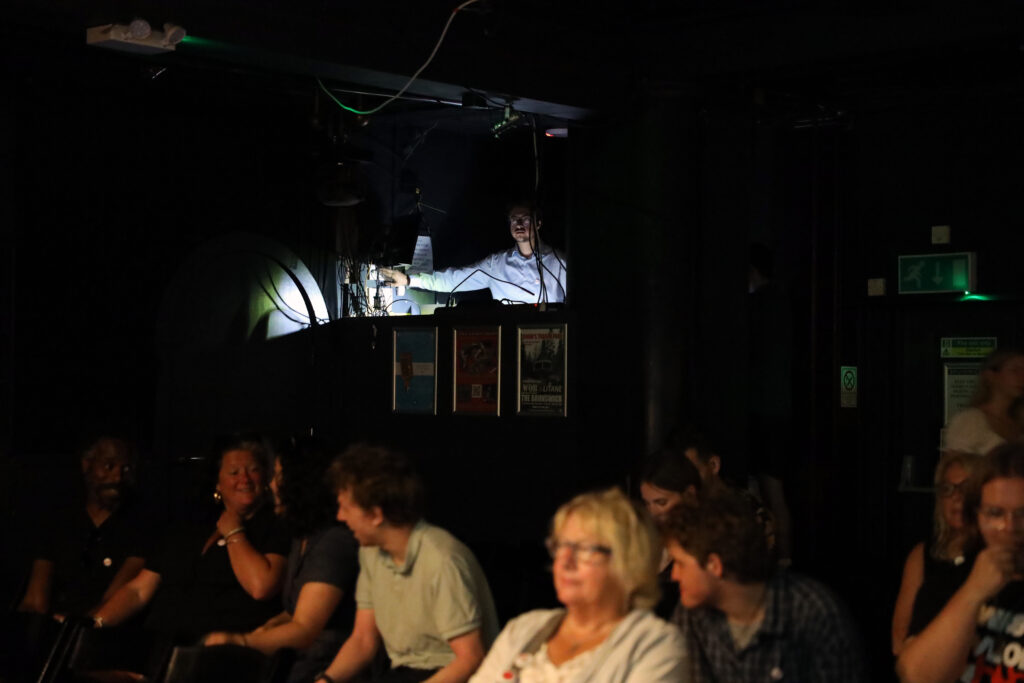
Can you tell us about the students and teams you worked with to bring the festival to life?
From conception to execution of this event, I tried to keep this team quite small as I wasn’t sure what kind of response the event would receive. For this reason, I didn’t want to build a large team, which would then lead to less people being available to actually attend the event, rather than work at it.
While most of the planning for the event was a lonesome task, the friends who I had asked to help me were invaluable. The team helped with things such as promoting the event, to carrying out some of the logistical tasks such as: printing out posters, creating badges, and picking up items for the festival on the day. I was extremely thankful for the physical support I received on the day from Wojtek Perales, Niamh Quirke, Euan Busby and Archie Foulkes, to name a few.
My family was also incredibly supportive of this project and drove down from London to attend. My mother in particular (who is a baker), made custom cupcakes for the event, which we were able to sell to raise more funds. It was so rewarding to see how everyone banded together to make this a success and I’m eternally grateful to everyone involved. I’m also incredibly thankful to the team at The Brunswick for their support.
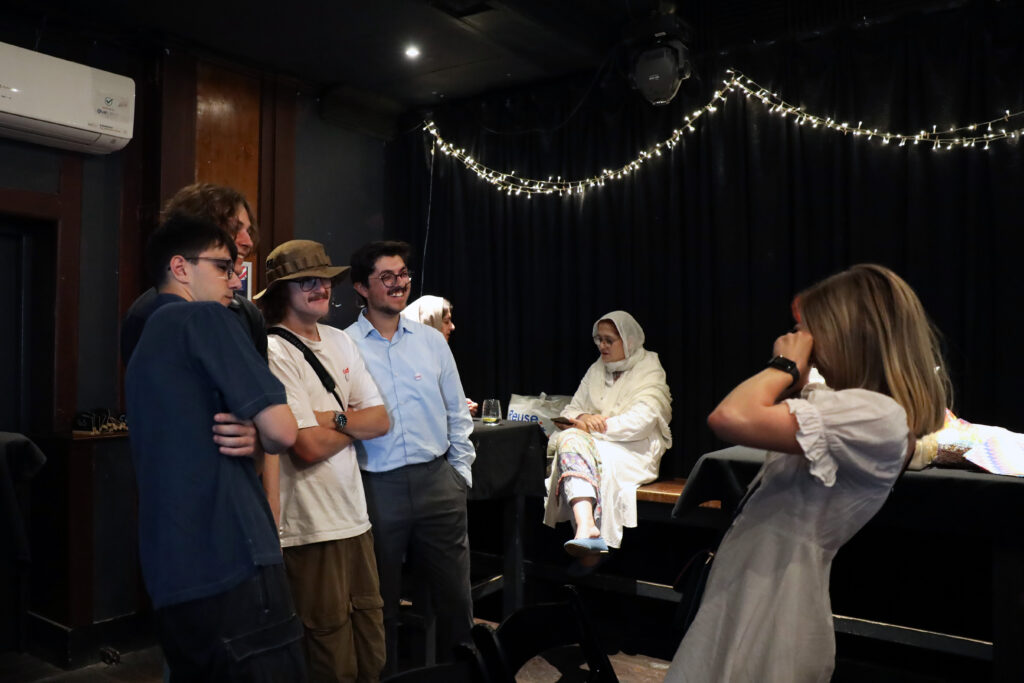
Looking back, what was the most rewarding part of organising the SOS Film Festival?
I think the most rewarding part of organising this event, was just the impact we were able to have on people. Pretty much everybody who attended the event left with something to think about. It was also great to see so many fantastic films being screened on a projector with such a great speaker system.
Of course, the money we were able to raise from this event in such a short period of time (only two weeks), was such an incredible surprise to me. I’m so humbled by everyone that decided to donate attend or participate in this event in any way shape or form. In my head, my initial goal was to try and raise £500 for our charities, so for us to be able to raise more than £750, that’s a massive achievement and I’m really proud of what we’ve done as a community.
To see the event come to life and be as successful as it was, was such a thrilling experience. I definitely didn’t expect to see the number of people that attended the event and I absolutely did not expect to raise the amount of money that we did. To surpass expectations on both of those fronts, but to also leave people with something to think about as they exited the event – I think that’s a major achievement. I’m humbled to know that together, we can have a small part in improving the lives of families who have suffered from much heartbreak and loss and are continuing to suffer due to the dire conditions they are in. While, events like this can’t fix the problem, they certainly can help to raise awareness, bring together communities and improve the lives of those less fortunate.
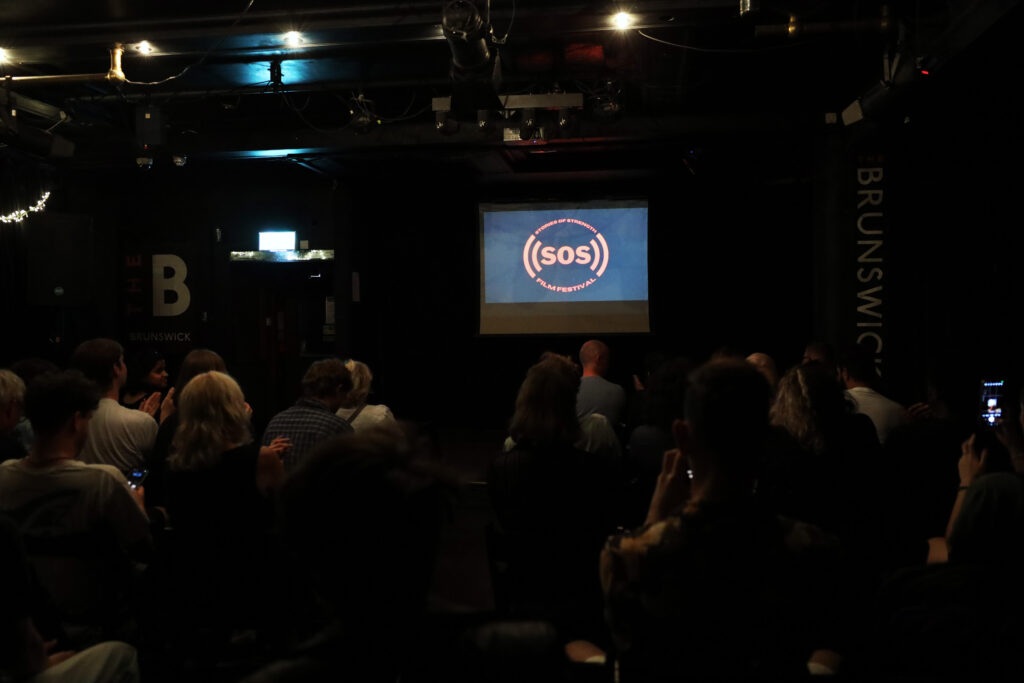
What advice would you give to other students who might be interested in organising their own events or festivals?
To anyone who is interested in taking on a similar endeavour, I would urge you to go for it no matter how unrealistic it may seem. When I first had this idea for the festival about two months prior, I had many thoughts of it seeming like an impossible task. Despite this, I persevered and continued to work on it in the background until it was ready to come into fruition.
It can often seem scary to try and pull off something on a larger scale due to the fear of failure, however it is paramount to remember that the greatest failure is to not try at all. Believe in yourself and your goals. You can do this! And if all of that isn’t enough, find a motivating factor to drive you forward. For me it was supporting the innocent families in Palestine, but for you, it may be something much closer to home. Look around, because inspiration and motivation is all around us, you just have to look for it.
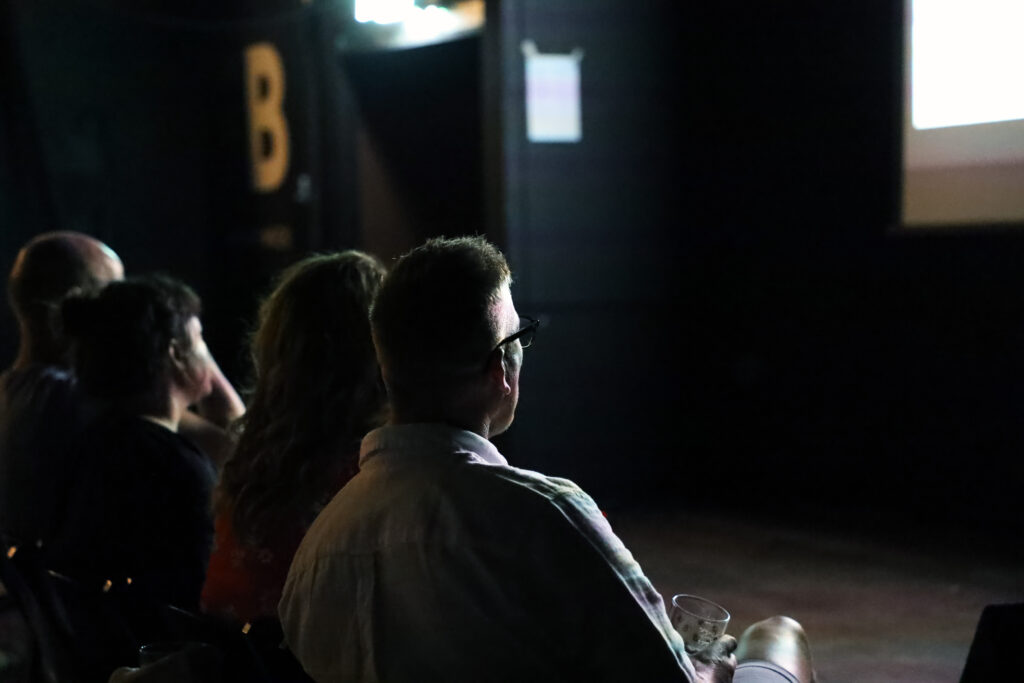
Is there anything else you’d like to share about your experience or any final thoughts on the importance of storytelling and solidarity through film?
I would just like to sincerely thank everybody who has played a part in making this film festival success. I am truly incredibly grateful for all the support we have received and cannot believe that the film festival turned out the way it has done.
With the world being in such a divisive state, I think it’s important to remember that we can use filmmaking as a beacon to bring communities together. As filmmakers, we have a responsibility to inspire creativity, and to bring about understanding between communities. Film is often seen as an outlet for entertainment, however the impact that film has on the world around us is far greater than it may seem.
Films inspire hope and they allow us to see different perspectives on life. When we come together and approach each other with sincerity and kindness, we make the world a better place.
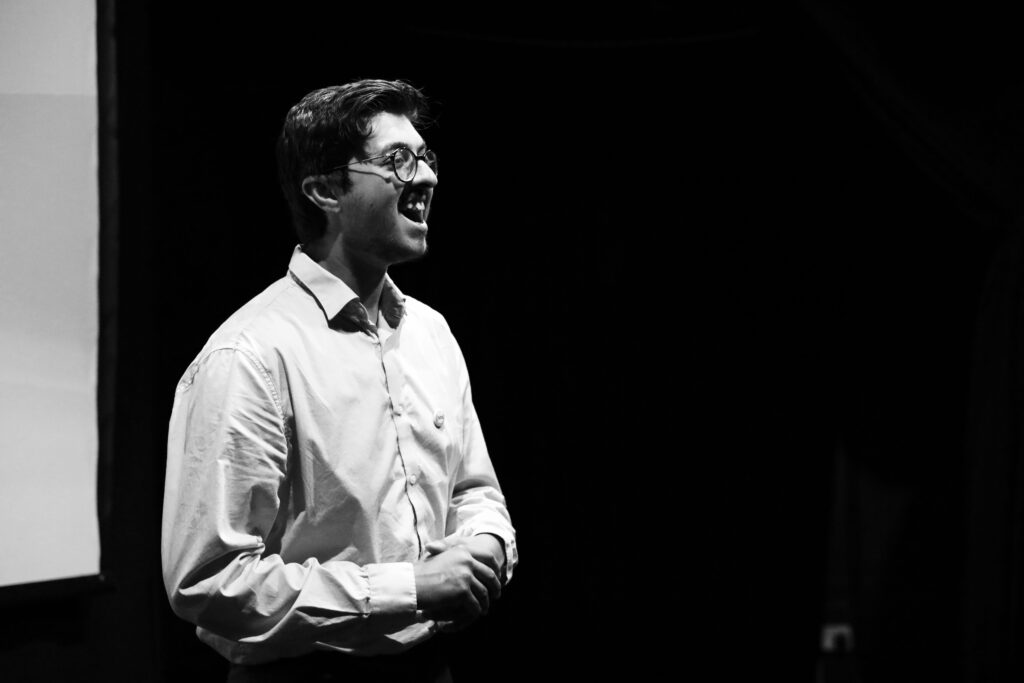
If you’d like to find out more about SOS Film Festival, visit their instagram page here.
